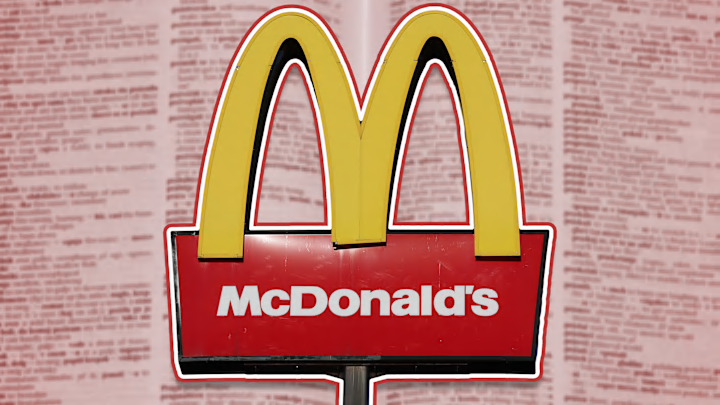Fast food giant McDonald’s has sold billions of hamburgers, but that success hasn’t come without getting into a few pickles. In the 2000s, the company butted heads with both the Oxford English Dictionary and Merriam-Webster’s Collegiate Dictionary over an entry they felt was disparaging to the brand. And no, it wasn’t cholesterol.
Executives were miffed that the two legitimized the word McJob.
While it’s impossible to discern who exactly coined the term, it gained widespread popularity after being featured in Generation X, the influential 1991 novel by Douglas Coupland about disenfranchised young adults. (The word had been used earlier, however—by McDonald’s itself, as a name of a job training program that was mentioned in a 1985 article in the Los Angeles Times.)
The Oxford English Dictionary began including the word McJob in its 2001 edition, defining it as “an unstimulating, low-paid job with few prospects, esp. one created by the expansion of the service sector.” While McDonald’s was not mentioned by name, the Mc made it fairly clear what sort of job and what sort of company would fit the description.
Merriam-Webster’s Collegiate Dictionary followed suit in 2003, using harsher language to describe a McJob as “low-paying and dead-end work.”
In both cases, McDonald’s was not amused. The company’s then-CEO Jim Cantalupo wrote an open letter to Merriam-Webster published in the trade magazine Nation’s Restaurant News objecting to the characterization. McDonald’s employees and other restaurant workers were undeserving of such condescension, he said, writing, in part:
“[A]t McDonald’s, a more appropriate definition of a ‘McJob’ might be ‘teaches responsibility.’ Young people learn what it takes to succeed. They learn how to interact with customers, how to prepare food properly, the importance of cleanliness, the value of showing up on time and what it means to work as an integral member of a team. They learn to take pride in their work. And, as these young people gain valuable experience and confidence in their own ability, they learn leadership and management skills that can last a lifetime. ... [W]hen it comes to opportunity, the sky’s the limit at McDonald’s.”
Things grew more confrontational in the UK, where McDonald’s reportedly considered legal action and suggested the definition of McJob be changed to reflect a “rewarding” occupation. The Oxford English Dictionary offered a rebuttal by saying their definitions reflect popular usage, not how a particular group wished a word to be used.
When it became clear that McJobs was staying put, the company launched an advertising campaign in 2006 to highlight new buzzwords like McFlexible, McDiscount, and McProspects to reflect the opportunities for employees, with the tagline “Not Bad for a McJob.”
McDonald’s was not alone in challenging perceived dictionary offenses. In 2005, Britain’s Potato Council made a similar complaint against the Oxford English Dictionary for associating couch potato and thus potatoes with unhealthy living. The council’s preferred phrase, couch slouch, failed to catch on.
A version of this story ran in 2021; it has been updated for 2024.
